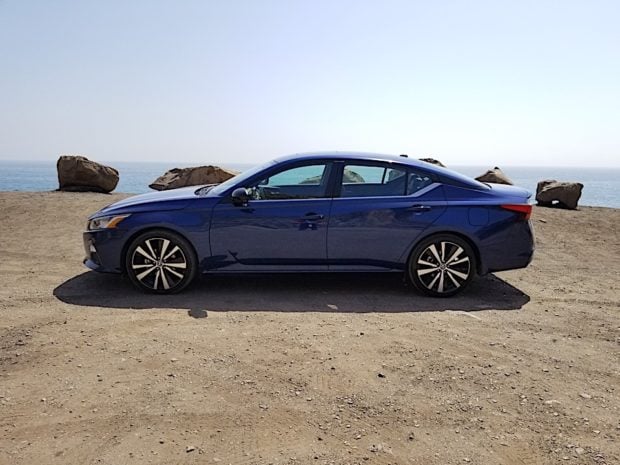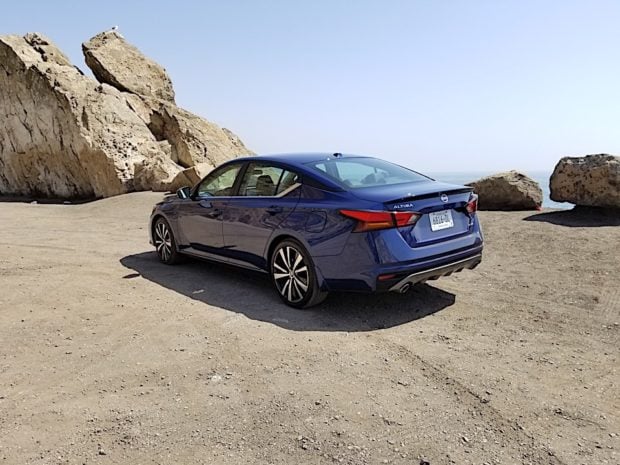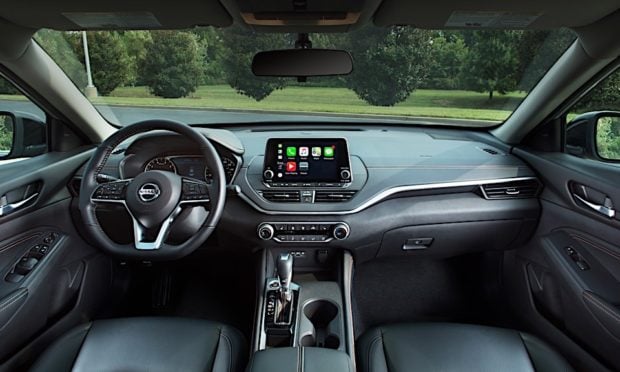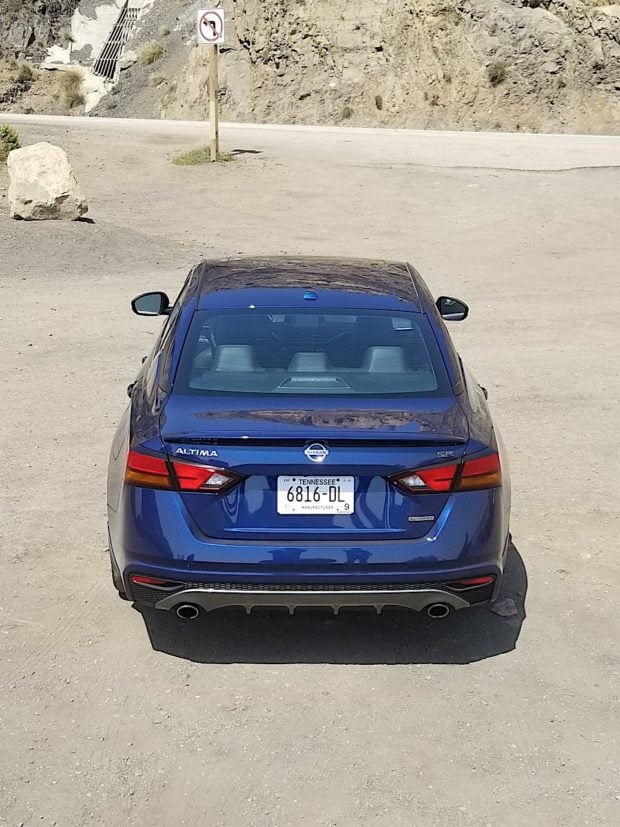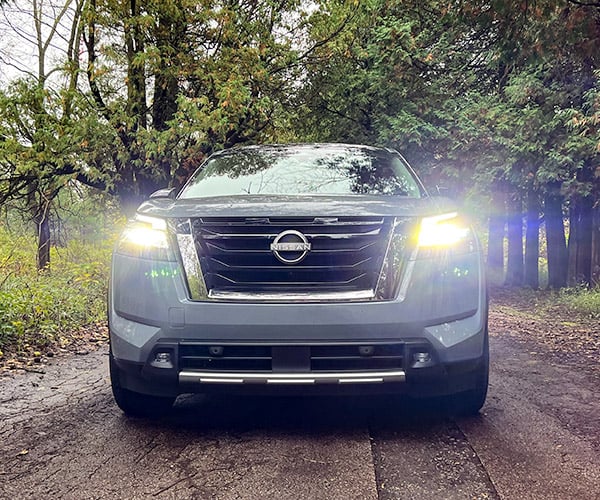2019 Nissan Altima First Drive Review: The Altimate Midsize Sedan?
2019 | Altima | awd | nissan | nissan altima | vc-turbo
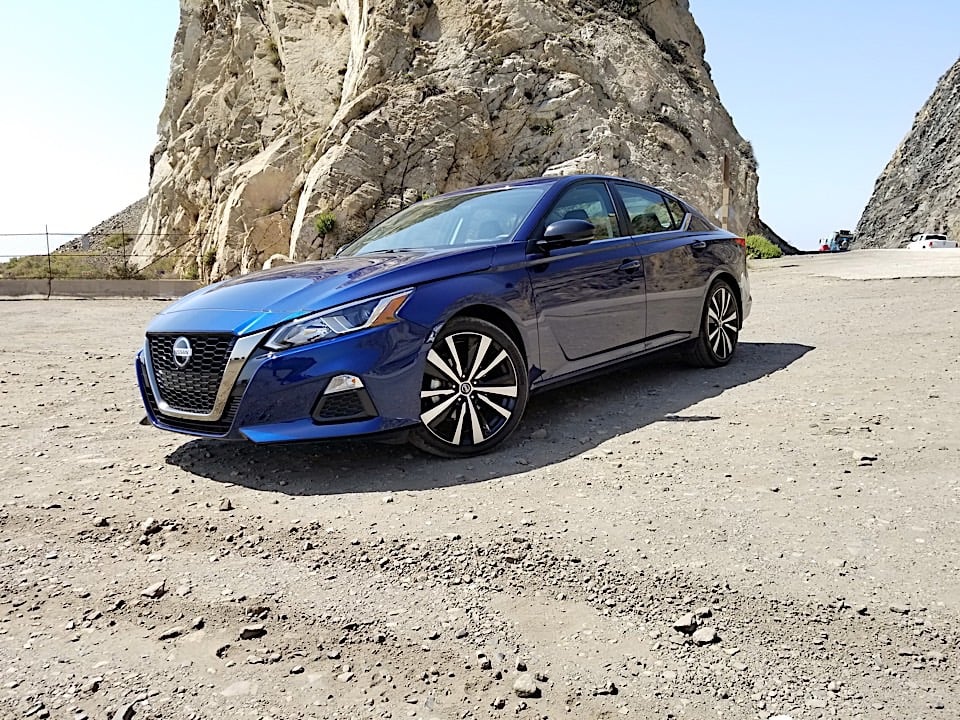
Chrysler discontinued the 200 midsize sedan. Ford announced that this will be the last generation of the Fusion midsize sedan. Sales of the Toyota Camry and Honda Accord midsize sedans aren’t what they used to be. It’s all because the majority of the car buying public want crossovers and SUVs. That segment is growing while sedan sales are slumping.
While the numbers point to a bleak future for midsize sedans in the US – unless fuel prices shoot up again – there are still millions of people every year buying a midsize sedan. While the overall options might be dwindling, that hasn’t stopped companies like Nissan from refreshing their sedans to keep them fresh and interesting. The latest in the line of new sedans is the redesigned 2019 Altima.
The previous generation of this car, admittedly, was a bit of a bore. Competent? Sure. It just lacked a bit in the excitement department. If you wanted a driver’s car you went for the Mazda 6, the Honda Accord, or the Ford Fusion. With the new Altima, things are better.
A new architecture means new driving dynamics, and the highlight is the new VC-Turbo 4-cylinder engine. Utilizing an industry first variable compression ratio technology, the engine can change its character on the fly in ways that other engines can’t. While imperceptible to the driver, the technology changes from a power mode when the driver wants power, to a fuel economy mode when just cruising down the highway.
The engine, when paired with the required premium fuel, makes 248 horsepower and 280 lb-ft of torque. With to a relatively light 3,436 lb body, the front-wheel drive VC-Turbo accelerates quickly. Though it’s accompanied by torque steer, the VC-Turbo Altima has plenty of power to exploit gaps in traffic or merge onto busy freeways effortlessly.
Unfortunately, the VC-Turbo is only available in front-wheel drive models. The Altima is one of only two midsize sedans – the other wears a Subaru badge – that will remain in production with all-wheel drive. That car is powered by the brand’s 2.5-liter naturally-aspirated 4-cylinder making 188 horsepower and 180 lb-ft. The curb weight is only 50-ish pounds more than the front-drive model, so it’s still relatively light.
Driving both back to back around Santa Barbara, California it’s clear that both of the cars are quite capable. On the highway the Altima is quiet and confident. On the twisty back roads, it handles corners well. The electronic power assisted steering is a bit too light for my taste, but it’s not difficult to place the car where you want it when cornering. When you push the car to the limits, it tends towards safe understeer, but driven like a sane person it’s a pleasant driving experience.
Higher-end models come packed with technology, including Android Auto and Car Play support, Nissan’s ProPilot Assist SAE Level 2 ADAS semi-autonomous driver assist technology, street sign recognition and Nissan Connect Services. That technology lets you control features of your Altima from your smart device in the home.
The continuously-variable transmission is tons better than in the previous generation, and now that Nissan has committed to it for a while they’ve really refined it to where it’s a solid piece. It’s better than some regular automatic transmissions that I’ve driven, though the best of the automatics are still better than the best of the CVTs.
While the VC-Turbo is the more exciting of the two to drive, I’d still probably opt for the all-wheel drive 2.5L. It doesn’t require premium fuel, and it’ll be better in climates where it snows. Plus, its power is fine, and at no point did the car feel too slow or too sluggish. In fact the VC-Turbo almost felt like overkill and the 2.5L felt like the right mixture of power and fuel economy.
Plus, all of the cool features and tech toys that I like and that buyers expect are available on both trims of the Altima. After spending time with ProPilot Assist, it’s hard to imagine buying a car without similar technology in the future, and Nissan should be applauded by offering it in cars that aren’t premium luxury models.
It’s hard to tell someone to not buy the Honda Accord this model year, but compared to the new Toyota Camry I think I’d opt for the Altima. The infotainment’s support of Android Auto and an easier to use setup push me over the edge there. ProPilot Assist also makes a strong case for going with the Altima.
All-in, the Altima is an improvement over the previous model with technology and driving dynamics that are on par with the best in the segment. Plus, if you want all-wheel drive, the Nissan is a strong contender for your midsize sedan dollars.






